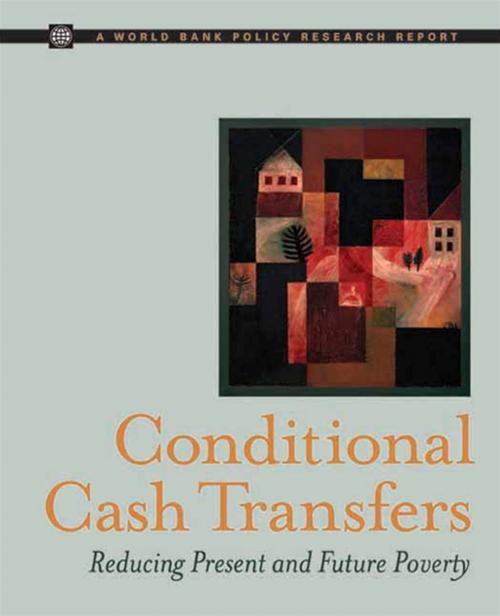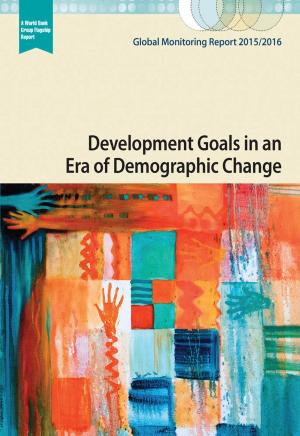Conditional Cash Transfers: Reducing Present And Future Poverty
Business & Finance, Finance & Investing, Finance| Author: | Fiszbein Ariel; Schady Norbert R. | ISBN: | 9780821373521 |
| Publisher: | World Bank | Publication: | February 9, 2009 |
| Imprint: | Language: | English |
| Author: | Fiszbein Ariel; Schady Norbert R. |
| ISBN: | 9780821373521 |
| Publisher: | World Bank |
| Publication: | February 9, 2009 |
| Imprint: | |
| Language: | English |
Conditional Cash Transfer (CCT) programs aim to reduce poverty by making welfare programs conditional upon the receivers' actions. That is, the government only transfers the money to persons who meet certain criteria. These criteria may include enrolling children into public schools, getting regular check-ups at the doctor's office, receiving vaccinations, or the like. They have been hailed as a way of reducing inequality and helping households break out of a vicious cycle whereby poverty is transmitted from one generation to another. Do these and other claims make sense? Are they supported by the available empirical evidence? This volume seeks to answer these and other related questions. Specifically, it lays out a conceptual framework for thinking about the economic rationale for CCTs; it reviews the very rich evidence that has accumulated on CCTs,; it discusses how the conceptual framework and the evidence on impacts should inform the design of CCT programs in practice; and it discusses how CCTs fit in the context of broader social policies. The authors show that there is considerable evidence that CCTs have improved the lives of poor people and argue that conditional cash transfers have been an effective way of redistributing income to the poor. They also recognize that even the best-designed and managed CCT cannot fulfill all of the needs of a comprehensive social protection system. They therefore need to be complemented with other interventions, such as workfare or employment programs, and social pensions.
Conditional Cash Transfer (CCT) programs aim to reduce poverty by making welfare programs conditional upon the receivers' actions. That is, the government only transfers the money to persons who meet certain criteria. These criteria may include enrolling children into public schools, getting regular check-ups at the doctor's office, receiving vaccinations, or the like. They have been hailed as a way of reducing inequality and helping households break out of a vicious cycle whereby poverty is transmitted from one generation to another. Do these and other claims make sense? Are they supported by the available empirical evidence? This volume seeks to answer these and other related questions. Specifically, it lays out a conceptual framework for thinking about the economic rationale for CCTs; it reviews the very rich evidence that has accumulated on CCTs,; it discusses how the conceptual framework and the evidence on impacts should inform the design of CCT programs in practice; and it discusses how CCTs fit in the context of broader social policies. The authors show that there is considerable evidence that CCTs have improved the lives of poor people and argue that conditional cash transfers have been an effective way of redistributing income to the poor. They also recognize that even the best-designed and managed CCT cannot fulfill all of the needs of a comprehensive social protection system. They therefore need to be complemented with other interventions, such as workfare or employment programs, and social pensions.















